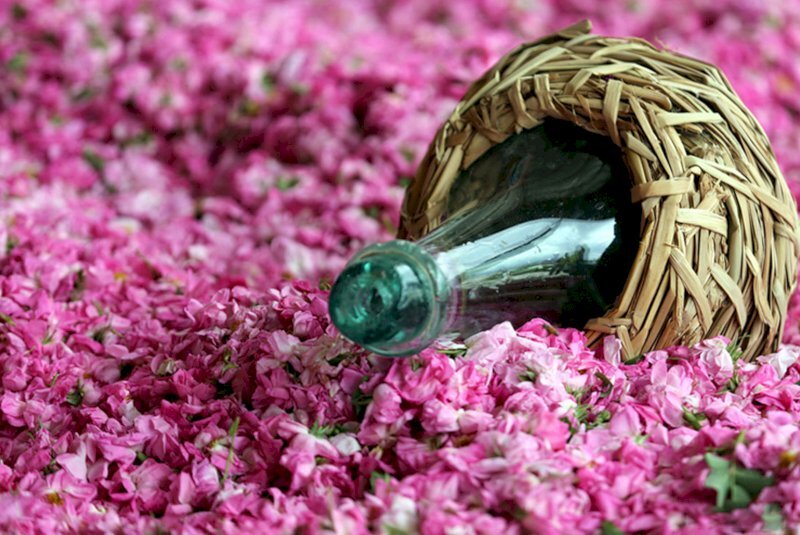Iranian village, passers-by relish free rosewater in Muharram remembrance

TEHRAN–One of the main Muharram rituals in the small village of Cham Alishah, the central province of Isfahan, is the nazr of rosewater, which means to vow or commitment to carry out an act to fulfill wishes during a rosewater distillation ceremony.
The ritual is held on the seventh day of the lunar month of Muharram, when villagers gather in the houses where rosewater is collected from dried rose flowers, and they participate in the rosewater distillation ceremony, commonly known as “Golab-giri.”
As part of this ceremony, the women of the village are enthusiastically present, and they use a variety of methods, including writing on the cauldron with a piece of wood, lighting a candle next to it, or taking wood from the fire under the cauldron and taking it home for the next year’s ceremony.
Meanwhile, the participants are nazri (charity food) cooked by all families in the village.
As a blessing, people use the rosewater obtained through this ancient ritual during Tasua and Ashura (the ninth and tenth days of the mourning month of Muharram).
Golab or rosewater is obtained from a particular kind of Rose, known as Mohammadi roses, in Iran. Harvesting flowers seems to be the most important part of the process. They should be picked from dawn through morning very carefully. The petals are put into massive copper pots and boiled, and then the extracted water is kept in special bottles. The longer the distillation is, the better will be the quality of the rosewater.
Golab is used nationwide in diverse traditional dishes to flavor them or consumed as a religious perfume as well.
Iranians, who are mostly Shia Muslims, hold special ceremonies during the first ten days of the lunar month of Muharram to commemorate the martyrdom anniversary of Imam Hussein (AS), the grandson of Prophet Muhammad (PBUH) and his 72 loyal companions.
For Iranians, Ashura is a solemn day of mourning, marked by various mourning rituals and passion plays re-enacting the martyrdom. Men and women, dressed in the black, parade through the streets, slapping their chests and chanting. Some people seek to emulate the suffering of their third Shia Imam by flagellating themselves with chains in a symbolic act.
Religious ceremonies in Iran more than often include food offerings, whether they are held at public venues like mosques or private residences. These communal gatherings are also a kind of forum where friends, acquaintances, and neighbors meet over food that is served after the ceremonies.
During Muharram, every village, township, city, or metropolis is abuzz with preparation for food offerings known as Nazri, the processions of which are usually sponsored by wealthy benefactors.
ABU/AM
Leave a Comment